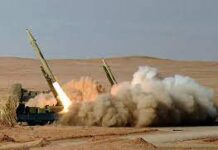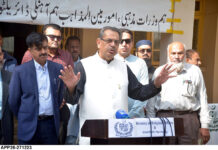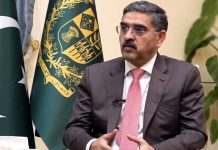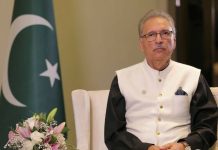
“The problems of our times are extraordinary,” Ibraham Mohamed Solih, president of the Maldives, an Indian Ocean island nation threatened by the rising waters of climate change, said at the U.N. General Assembly a few days ago.
There are those mornings when you come into work and everyone seems cranky. That’s how it felt at the United Nations this past week during the annual gathering of world leaders. Speech after gloomy speech by leaders from all corners of the planet pointed toward one bleaker-than-thou conclusion: Humanity clearly needs a spa day.
The United Nations was founded in an optimistic fervor after World War II’s devastation, on the notion that a cooperative body of countries could construct a brighter future by learning to get along. Though that hope remains a fundamental underpinning, the actual tenor these days seems to set a lower bar: Try to mitigate climate Armageddon, and prevent some of its 193 member nations’ diligent attempts to undermine and sometimes destroy each other.
So words like “existential threat” were as much a part of the leader-speech landscape this past week as the usual references to “this august body.”
“We are living in times when the magnitude and number of lasting crises is constantly increasing,” said Igor Dodon, Moldova’s president. “We have had enough wars. We don’t want new wars,” said Iraqi President Barham Salih, who would certainly know. And from Roch Marc Christian Kabore, president of Burkina Faso, came this understatement: “International news has been marked by tension.” Some of this is pure rhetoric. If you’re a nation of the world and you want something – money, troops, action, understanding – you must lay out a problem so you can propose the solution or, at least, persuade your compatriots that a solution is necessary.
So leaders and diplomats bring a lot of problems to the U.N. this time of year, hoping to leverage a global stage – and a rare one, if you’re a smaller member of the community of nations.
Climate change was a central part of that. A U.N. decision to really place the topic front and center produced both a youth climate summit and a full-on event the day before leaders’ addresses started. Many nations answered the call to sound an alarm potent enough to get collectively noticed.
“The challenges of planet and people are colliding with far-reaching consequences,” said Belize’s foreign minister, Wilfred Elrington.
Yet even given that context, it felt as if a lot more hopelessness than usual was kicking around. The U.N. secretary-general, Antonio Guterres, kicked it off Tuesday in opening the proceedings, painting a bleak picture of this micromoment in human history.
“We are living in a world of disquiet,” Guterres said.
“A great many people fear getting trampled, thwarted, left behind,” he said. “Machines take their jobs. Traffickers take their dignity. Demagogues take their rights. Warlords take their lives. Fossil fuels take their future.”
Yet is this all that different from before? There have been many moments during the United Nations’ 74-year history when we’ve been on the brink with politics, brinkmanship, displaced people, epidemics, possible nuclear war. Chaos has always reigned, right? Not quite like this. The speakers’ agenda Saturday was stocked with island nations from around the world who are, as so many of them said, on the front lines of climate change. To them, it’s not merely melting glaciers or species dieoffs; it’s amped-up hurricanes that could wipe them away and rising ocean waters that could slowly turn them into underwater ghosts.













